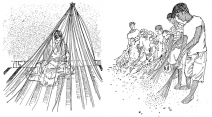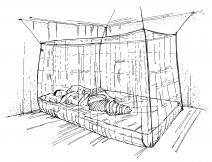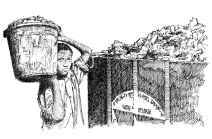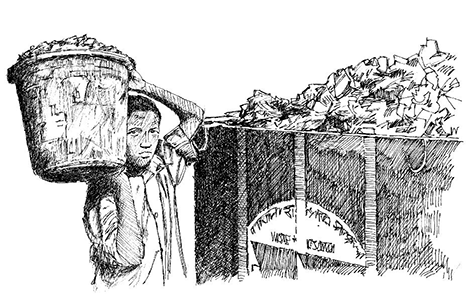38. Waste disposal and clean-up campaigns
38. Waste disposal and clean-up campaigns
Last update: 2025-06-03
Overview
- Diseases can spread easily in environments where there is waste and lack of sanitation. Rubbish can attract rodents and create breeding and feeding sites for various domesit, wild and scavenging animals and insects (including mosquitoes and flies). Human or animal faeces can also attract flies and other insects that carry germs, cause diseases and contaminate water sources.
- Human and animal waste infected with certain diseases (including animal carcasses, hospital waste, etc.) can also attract different animals and insects which may then spread the diseases to other animals and to humans.
- Standing and stagnant water provide breeding sites for various insects, including mosquitoes.
What to do and how to do it
Planning and preparing for clean-up
- Work with traditional and community leaders, the village health committee and other community partners to decide what needs to be cleaned up and how to go about it.
- Help to organize activities on agreed “clean-up” days.
- Ask community leaders to organize volunteer groups for each clean-up initiative.
- Speak with community members about the importance of keeping their community clean.
- Organize a community initiative to plan and create a central garbage disposal area.
- Make sure to have the cleaning tools and supplies available in advance to distribute among the community.
Facilitating community clean-up
- Organize special clean-up days in which all members of the community participate (twice a year or more often if possible).
- Motivate and support the community to work together to:
- Keep the community free of animal faeces and urine.
- Keep the community free of puddles and other mosquito breeding sites.
- Keep the community free of rubbish and garbage (by burning or burying it).
- Clear vegetation from around riverbanks and ponds near the community
- Clean the areas around water sources (such as pumps and wells).
- Create and maintain water soak pits around water sources.
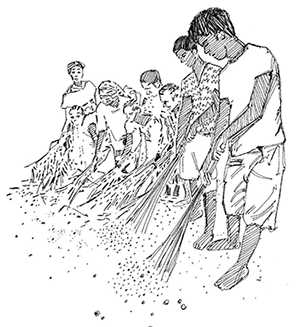
Tell community members how important it is to keep their community clean. Organize regular clean-up campaigns. Include houses and latrines, etc.
What you can do
- Work with traditional and political leaders, the village health committee and other community partners to decide what needs to be cleaned up and how to go about it.
- Help to organize activities on agreed “clean-up” days.
- Ask community leaders to organize volunteer groups for each clean-up initiative.
- Organize special clean-up days in which all members of the community participate (twice a year or more often if possible).
- Organize a community initiative to plan and create a central garbage disposal area.
Motivate and support the community to work together to:
- Keep the community free of animal faeces.
- Keep the community free of puddles and other mosquito breeding sites.
- Keep the community free of rubbish and garbage (by burning or burying it).
- Clean the areas around water sources (such as pumps and wells).
- Create and maintain water soak pits around water sources.
Make sure to dispose of waste properly.
This will help to protect the community from germs.
This will help to protect the community from germs.
